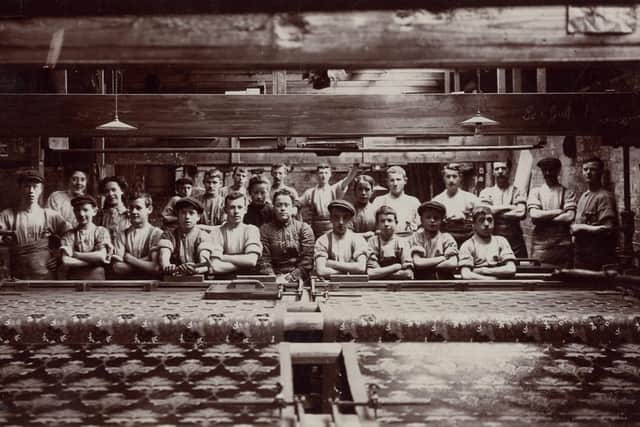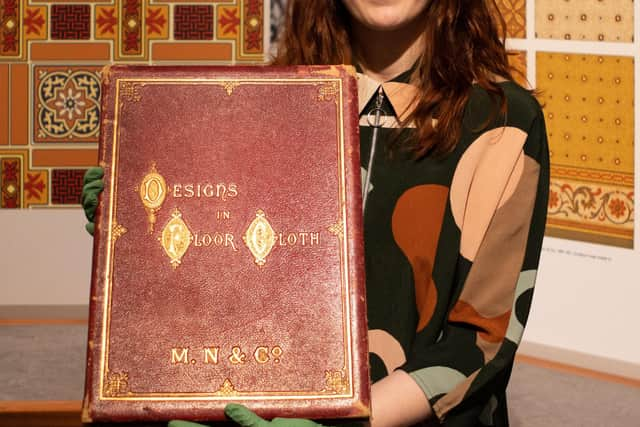Social history project aims to cover Fife lino industry's rich history
and live on Freeview channel 276
Now generations of workers who set foot in its famous linoleum factories and their families are being asked to share memories as part of a new initiative that fuses design and social history.
The Flooring the World project aims to raise global awareness of Fife’s storied contribution to the industry, and shine a light on its vast collection of more than 6,000 artefacts, which includes linoleum that once furnished Sir Paul McCartney’s childhood home in Liverpool.
Advertisement
Hide AdAdvertisement
Hide AdCurators hope the two-year project will help to fill the gaps in its extensive treasure trove, which includes photographs, pattern books, catalogues, samples and workers’ tools, while also capturing for posterity the reminiscences of those who helped the industry become world-leading.
Linoleum, and its many variants, has been dubbed the most ubiquitous and democratic of floor coverings, bought by customers across the social spectrum for much of the 20th century.
Products made in Kirkcaldy and the Fife villages of Falkland and Newburgh floored millions of homes, offices and public buildings at home and abroad.
At its peak in 1914, when Fife had the world’s flooring market covered, the industry employed one in ten of Kirkcaldy's population. But as middle-class consumers increasingly opted for vinyl flooring or carpets, just one factory was left by 1963.


Advertisement
Hide AdAdvertisement
Hide AdThe sole remaining factory, built by Kirkcaldy’s first floor covering manufacturer, Michael Nairn & Co, is still operational today, and is owned by the international flooring company Forbo. It is the only place in Britain where linoleum is still manufactured.
The Swiss-based company recently gifted its historical archive, which dates back to Nairn’s foundation in 1847, to the cultural charity OnFife, which runs the region’s museums service.
The archive includes promotional materials created by the renowned sculptor Eduardo Paolozzi, a striking set of linoleum marquetry pictures, and banners carried by workers on summer excursions.


Lily Barnes, the project engagement curator for OnFife, said: “Our collection is strong on the first century of lino production, but contains fewer objects from the 1960s onwards. This period, well within living memory of contemporary Fifers, will be a particular focus over the next two years.”
Advertisement
Hide AdAdvertisement
Hide AdCurators are particularly keen to hear from women workers and anyone who took part in industrial action. They also want to learn more about production in Falkland and Newburgh.
As well as recollections of day-to-day working practices, the team would welcome stories about the many musical bands, social clubs and sports teams linked to factories.
Gavin Grant, OnFife’s collections team leader, said: “We’d like to find out as much as we can about the everyday experiences of people working with linoleum – not just manufacturing, but retail, marketing, administration and all of the other associated roles.”
The Flooring the World project is backed by a £114,896 grant from the Esmée Fairbairn Collections Fund, which is run by the Museums Association and funds projects that develop collections to achieve social impact.
Comment Guidelines
National World encourages reader discussion on our stories. User feedback, insights and back-and-forth exchanges add a rich layer of context to reporting. Please review our Community Guidelines before commenting.
